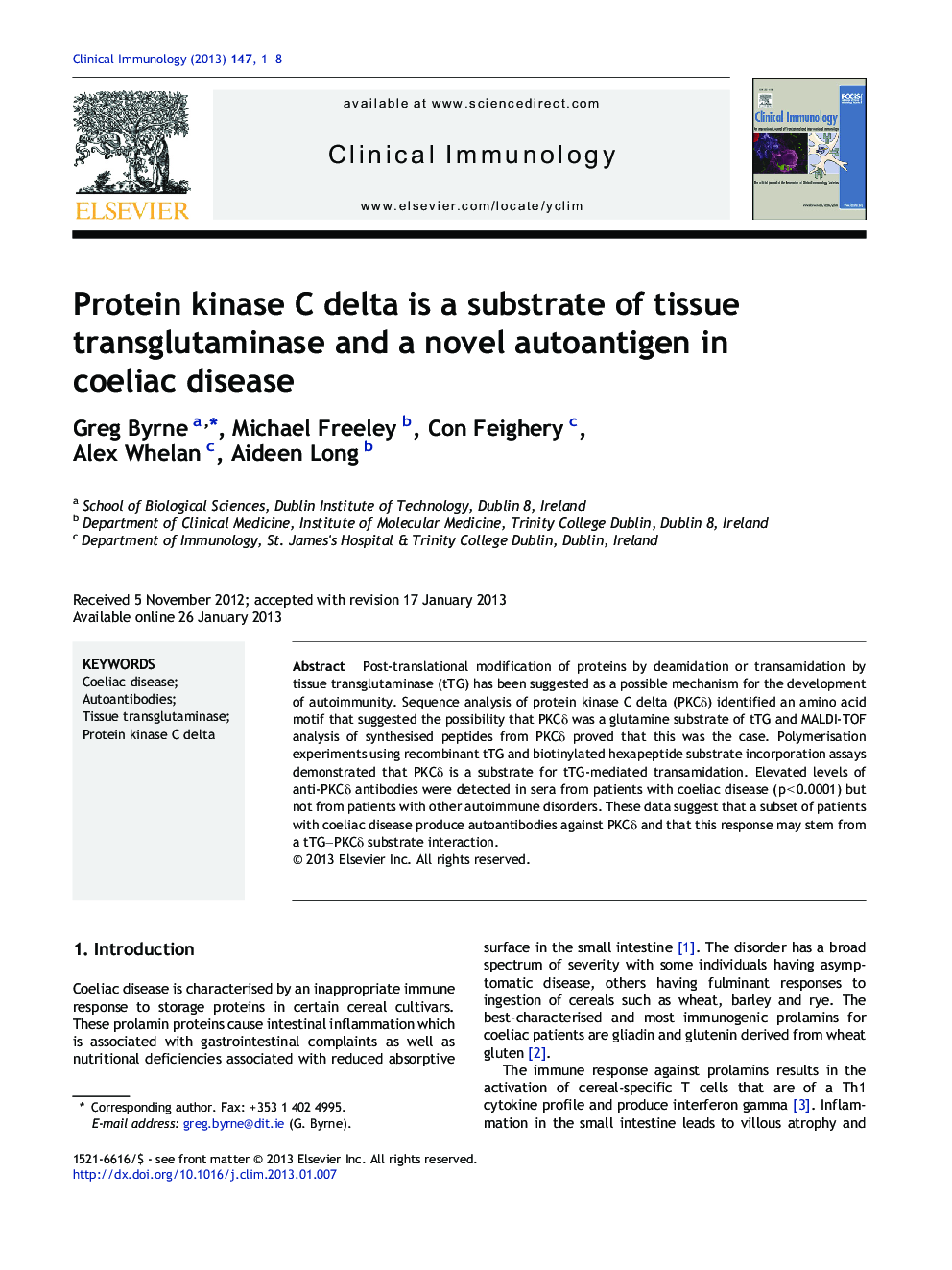| Article ID | Journal | Published Year | Pages | File Type |
|---|---|---|---|---|
| 3256962 | Clinical Immunology | 2013 | 8 Pages |
Post-translational modification of proteins by deamidation or transamidation by tissue transglutaminase (tTG) has been suggested as a possible mechanism for the development of autoimmunity. Sequence analysis of protein kinase C delta (PKCδ) identified an amino acid motif that suggested the possibility that PKCδ was a glutamine substrate of tTG and MALDI-TOF analysis of synthesised peptides from PKCδ proved that this was the case. Polymerisation experiments using recombinant tTG and biotinylated hexapeptide substrate incorporation assays demonstrated that PKCδ is a substrate for tTG-mediated transamidation. Elevated levels of anti-PKCδ antibodies were detected in sera from patients with coeliac disease (p < 0.0001) but not from patients with other autoimmune disorders. These data suggest that a subset of patients with coeliac disease produce autoantibodies against PKCδ and that this response may stem from a tTG–PKCδ substrate interaction.
► We examine the possibility that PKCδ is a substrate for tissue transglutaminase. ► A peptide derived from PKCδ is deamidated and transamidated by tTG. ► Interaction between tTG and PKCδ results in heterodimer formation. ► Some patients with coeliac disease produce anti-PKCδ autoantibodies.
